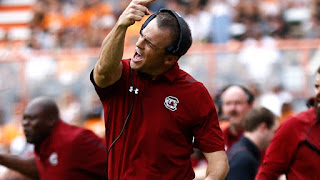Supreme Court deals blow to NCAA in Alston decision
Granted, every decision the court makes could be considered landmark because it sets precedent for future legal discussions.
On June 21, SCOTUS announced a major decision that will likely effect the relationship between the NCAA and the athletes competing under the banner.
In a unanimous decision of NCAA v. Alston, the court ruled student-athletes could receive education-related payment.
LINK: SCOTUS rules against NCAA
In short, the justices rejected the NCAA’s argument that its players’ amateur status would be impossible to maintain if they could receive pay, even for education-related expenses. The courst also cited anti-trust law, or more eloquently put by Justice Neil Gursuch, who wrote the majority opinion.
“Put simply, this suit involves admitted horizontal price fixing in a market where the defendants exercise monopoly control."
He added, “to the extent it means to propose a sort of judicially ordained immunity from the terms of the Sherman Act for its restraints of trade — that we should overlook its restrictions because they happen to fall at the intersection of higher education, sports, and money — we cannot agree."
The decision marks a second major blow to the NCAA, following the 2014 case O'Bannon v NCAA, where the court found the NCAA was profiting off name and likiness of athletes without compensating the athletes.
The fallout of the O'Bannon case led to the end of the NCAA vidoe game tie in with EA Sports.
The real question moving forward is the scope of that key phrase "education-related payments."
That term may also give the NCAA wiggle room to dictate what is and is not an education-related payment.
Is a food stipened education-related? What about receiving money for an appearance at a library event to encourage reading in children? Playing sports entirely?
I fear this decision did not address the key sticking point at the heart of the issue: The amatuerism status of the athletes.
Put aside the debate on if a full academic scholarship is suffice to compensation, are these athletes still amateurs? Are they amateurs if they are at the heart of, and the appeal, to the billion-dollar industry? Granted, the past year that billion was cut in half due to the Covid 19 pandemic, but rest assured, with things opening back up and full capacity expected across the country, that figure should return to the 10-figure amount.
If an athlete receives a full ride, are they in school to go to class, or are they going to school to help raise and make money for that institution, especially when it comes to football and basketball.
Also, is there also a different set of expectations at certain schools where a football player is expected to help bring in X amount of dollars, but a tennis player isn't?
The true test for the NCAA you have to imagine is around the corner to question the athlete's amateur status.
Until then, the Alston decision is a positive step for athletes, and it is a win, don't misconstrue that as an outright defeat and players will soon be getting paid.
This almost feels like a crumb has been tossed, while the NCAA still holds firmly the bread.




Comments
Post a Comment